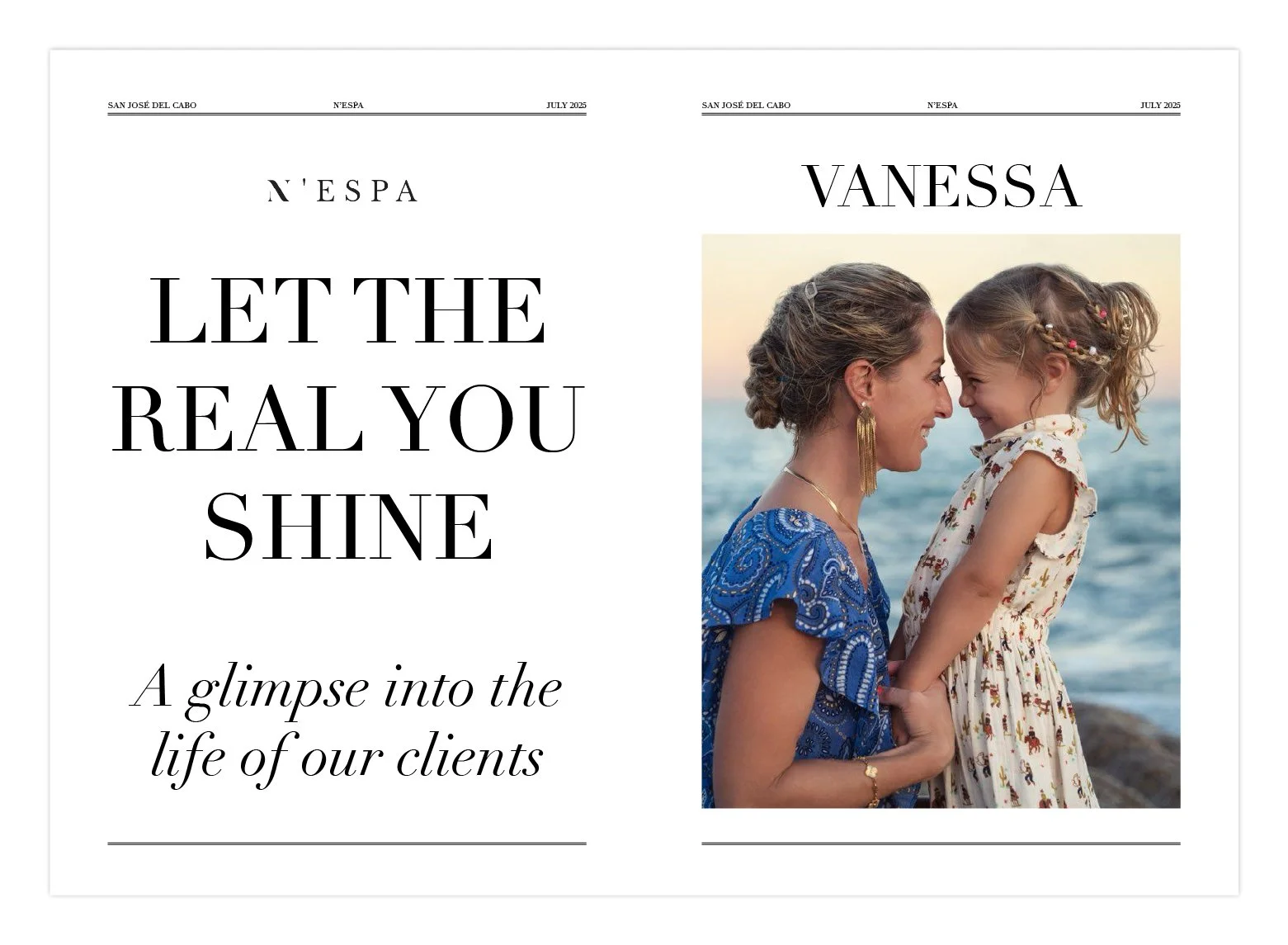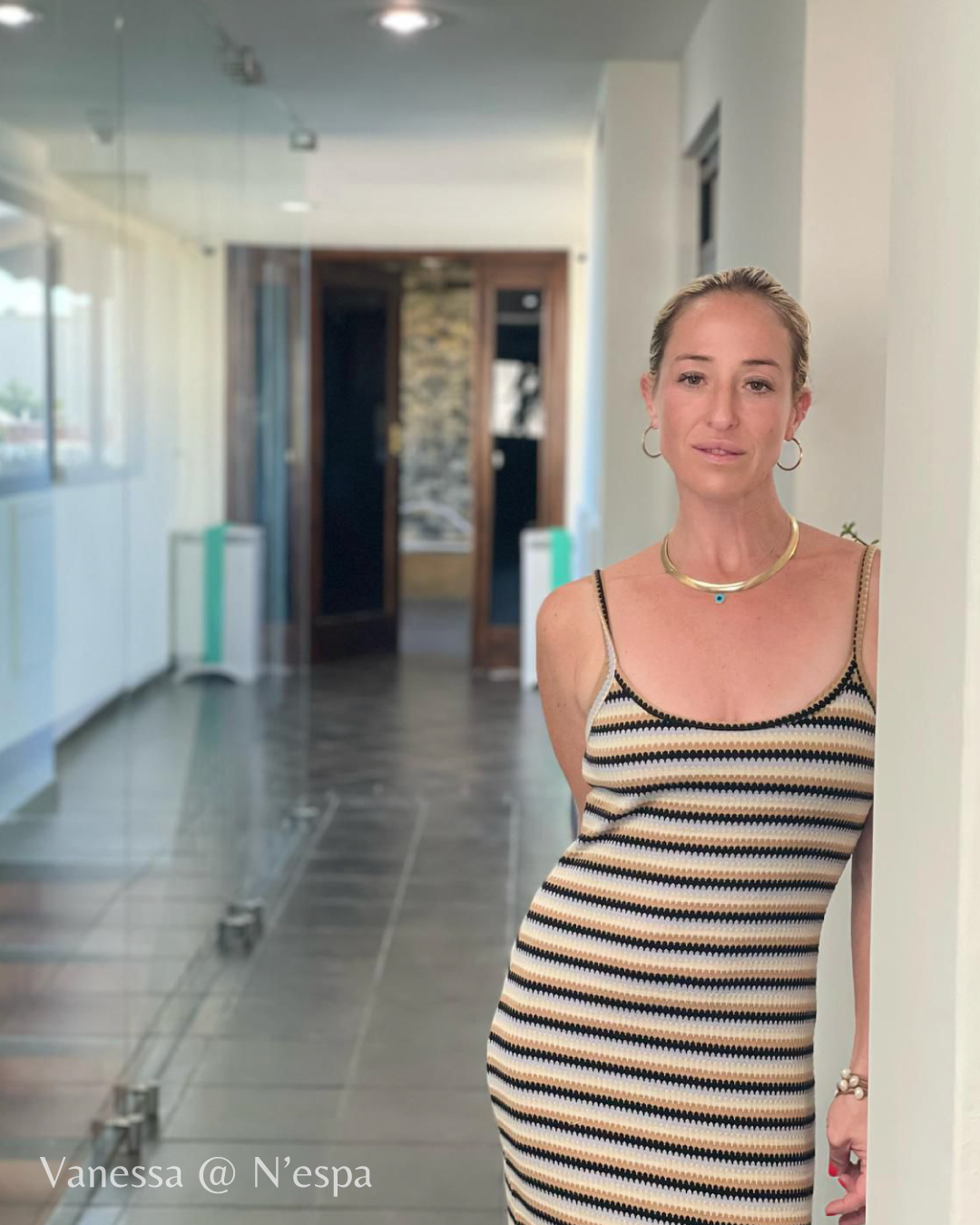LET THE REAL YOU SHINE
We had the privilege to spend a moment with Vanessa at N’espa. Here is a glimpse of the beauty we witnessed.
There’s something about Vanessa—something in the way she chooses her words with deliberate care, as if fully aware that life itself demands a kind of grace even when it offers none. Her sentences come in thoughtful turns, rounded by a quiet clarity, shaped not by self-pity but by reflection. “Without sounding egotistical,” she begins, a phrase that serves as both shield and confession, as though she's already halfway through an apology for having the strength to endure.
Vanessa does not walk through the world untouched. She has known grief, and not in the abstract sense that populates literature or cinema. A few years ago, she lost her husband—an event she references with a simplicity that belies its weight. But in the wake of that loss, she found something else: empathy. Not the performative kind that often masquerades as compassion, but a lived, earned understanding. “It changed my perspective,” she says, “on how to not only empathize with individuals, but to never judge somebody for what they look like, where they come from, or how others perceive them.”
These aren’t talking points. Vanessa doesn’t talk that way. If anything, she speaks like someone who’s spent long hours thinking in silence—on subway rides, in empty rooms, maybe while watching her daughter sleep. She doesn’t preach. She instills. Every day, she says, she tries to pass that empathy on to her daughter—a child who has also lost her father, who is also walking through a life rewritten.
Grief, it seems, is not the end of Vanessa’s story—it’s the context. And within that context, she builds. “I’m an avid believer in personal goals,” she tells me, almost businesslike now. Six-month, one-year, ten-year goals—tiny lighthouses scattered along the foggy coastline of what comes next. For her, organization is not just a strength; it is survival. Creativity is not a luxury; it is fuel. Optimism—looking at the world “half full”—is not naïveté, but strategy.
There is, too, an understanding of boundaries. “The most important thing,” she notes, “is that we separate business and personal. Easier said than done.” She laughs a little, the way people do when they’ve had to learn something the hard way. “But this is beyond important.” Vanessa understands that life—particularly as a woman, a mother, and a widow—demands a bifurcation of self: the heart that feels and the mind that plans. She is learning not to take things personally, even when everything feels personal.
What becomes clear in conversation with Vanessa is that she doesn’t just inhabit multiple roles—mother, professional, widow, woman—she navigates them like someone who has learned the delicate art of balance. There’s no performative hustle here, no need to declare how hard she works. The work is everywhere—in the way she speaks of her daughter, in the way she remembers her husband, in her insistence that kindness is not an accessory but an essential.
When I ask her who inspires her, the answer is immediate and without hesitation. “My daughter,” she says. Not as a soundbite, not as a narrative device—but as an anchor. The child’s resilience, Vanessa tells me, is what gives her the will to get out of bed. “She is my life,” she says, “and I will do anything to make sure she remains a happy, kind, and empathetic little girl.”
In a time where people often confuse visibility with value, Vanessa’s strength is quiet, and thus, rare. She isn’t selling a brand of grief or triumph. She’s simply living both—and doing so with a clarity and humility that feels increasingly endangered.
In the end, Vanessa is not a story of overcoming, but of becoming. And in that becoming, she reminds us that real strength rarely needs to announce itself. It just is.
We’re grateful to Vanessa for spending time with us at N’espa—a restorative sanctuary where healing begins not just with treatments and therapies, but with stories like hers. In her presence, we’re reminded that restoration is more than a service; it’s a shared human endeavor.




